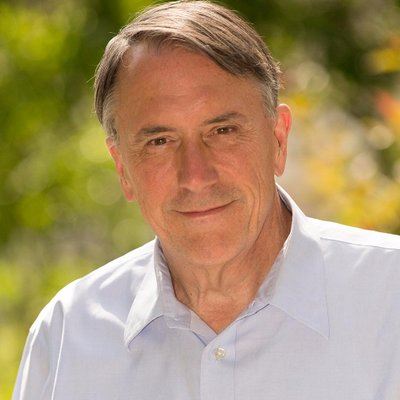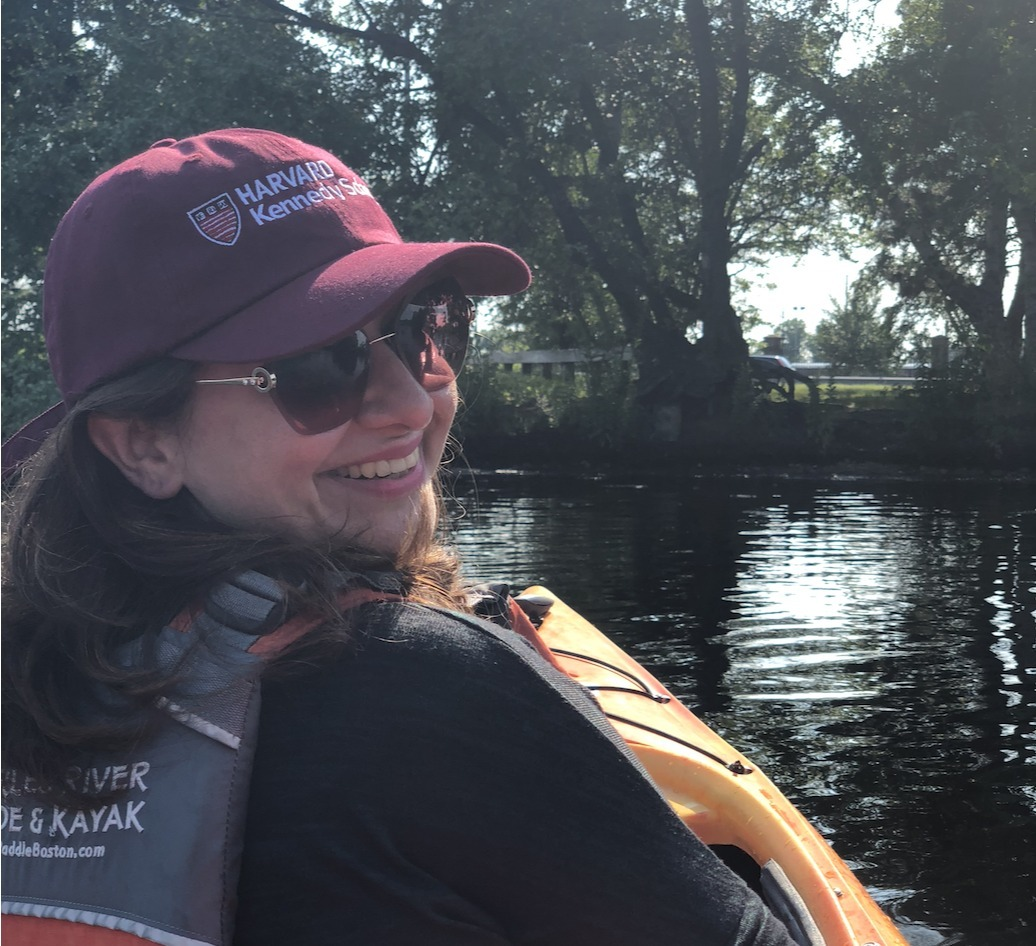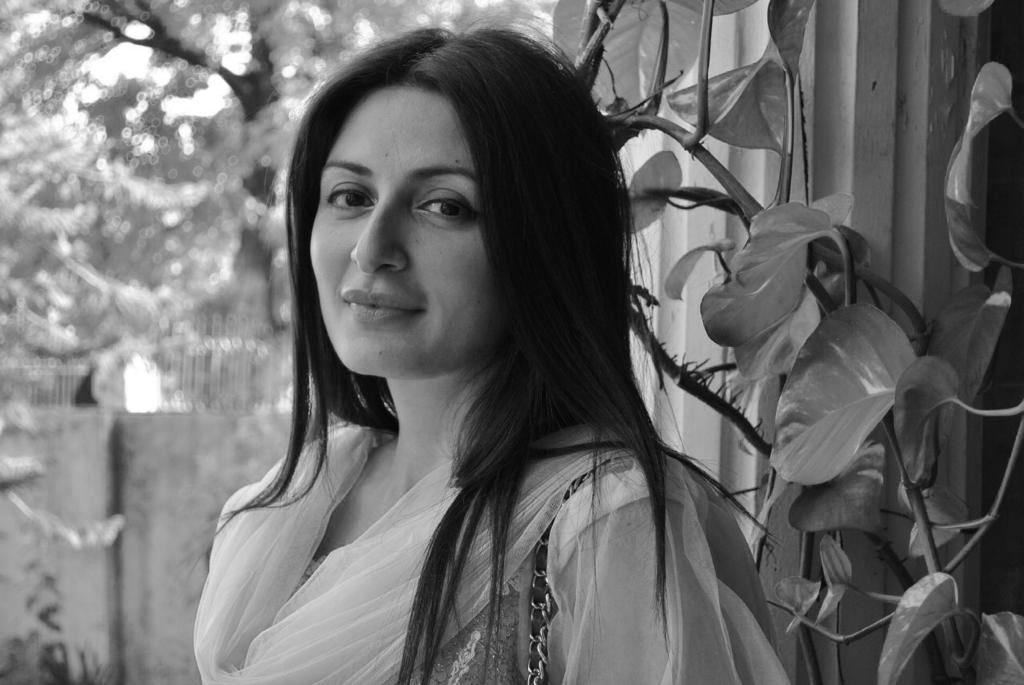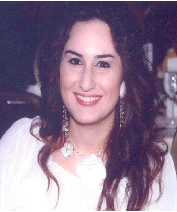- HOME
- BBLP Fellows Conversation
Benazir Bhutto Leadership Program Fellows Reflect on Lessons Learned
Saturday, May 20th, 2023
We have created a video from this conversation—one of the whole event. It is available by clicking "play" on the YouTube video screen below.
LEARN MORE ABOUT THE BBLP PROGRAM HERE
On Saturday morning May 20 from 9-10:30 am ET, former US Ambassador to Croatia, classmate and BBLP Steering Committee Member Peter Galbraith lead a Zoom discussion with all five of the fellows: Roohi Abdullah, Natasha Jehangir Khan, Nadia Rehman, Zeina Majdalani, and Laila Khondkar. The Fellows spoke about their work in legal reform, pandemic relief, and infrastructure improvement, and provided their thoughts on women’s leadership in nations that stretch from the Mediterranean to the Bay of Bengal. Attendees were able to ask questions about the successes to date of the BBLP as well as its goals for the future.
OUR MODERATOR AND PANELISTS
MODERATOR: AMBASSADOR PETER GALBRAITH '73
@GalbraithforVT Ambassador Peter W. Galbraith is an author, academic, commentator, politician, policy advisor, and former United States diplomat. From 1993 to 1998, he served as the first U.S. Ambassador to Croatia, where he was co-mediator of the 1995 Erdut Agreement that ended the Croatian War of Independence. He was a cabinet member in East Timor’s first transitional government, successfully negotiating the Timor Sea Treaty. In 2009, Ambassador Galbraith was an Assistant Secretary General of the United Nations serving as Deputy Special Representative for Afghanistan. Ambassador Galbraith served two terms as a Vermont State Senator from Windham County from 2011 to 2015, and was a candidate for Governor of Vermont in 2016. He is the author of two critically acclaimed books on the Iraq War, including the bestselling The End of Iraq: How American Incompetence Created a War Without End. Ambassador Galbraith argues that Iraq has broken up into three parts, allowing for Kurdistan’s independence. In the 1980s, Galbraith uncovered the beginnings of the Anfal campaign against the Iraqi Kurds and, in 1988, documented the use of chemical weapons, leading the US Senate to pass comprehensive sanctions legislation (“The Prevention of Genocide Act of 1988”) authored by Galbraith. He was in Kurdistan during the 1991 uprising and his reports–including video footage of the uprising’s collapse – contributed to the US decision to create a safe area. Beginning in 2003, Ambassador .Galbraith was an informal advisor to the Kurdistan Regional Government in northern Iraq, supporting the Kurdistan delegation in the drafting process of the 2005 Iraqi Constitution. He is on the Board of Directors of the Center for Arms Control and Non-Proliferation, the research arm of the Council for a Livable World.
Ambassador Peter W. Galbraith is an author, academic, commentator, politician, policy advisor, and former United States diplomat. From 1993 to 1998, he served as the first U.S. Ambassador to Croatia, where he was co-mediator of the 1995 Erdut Agreement that ended the Croatian War of Independence. He was a cabinet member in East Timor’s first transitional government, successfully negotiating the Timor Sea Treaty. In 2009, Ambassador Galbraith was an Assistant Secretary General of the United Nations serving as Deputy Special Representative for Afghanistan. Ambassador Galbraith served two terms as a Vermont State Senator from Windham County from 2011 to 2015, and was a candidate for Governor of Vermont in 2016. He is the author of two critically acclaimed books on the Iraq War, including the bestselling The End of Iraq: How American Incompetence Created a War Without End. Ambassador Galbraith argues that Iraq has broken up into three parts, allowing for Kurdistan’s independence. In the 1980s, Galbraith uncovered the beginnings of the Anfal campaign against the Iraqi Kurds and, in 1988, documented the use of chemical weapons, leading the US Senate to pass comprehensive sanctions legislation (“The Prevention of Genocide Act of 1988”) authored by Galbraith. He was in Kurdistan during the 1991 uprising and his reports–including video footage of the uprising’s collapse – contributed to the US decision to create a safe area. Beginning in 2003, Ambassador .Galbraith was an informal advisor to the Kurdistan Regional Government in northern Iraq, supporting the Kurdistan delegation in the drafting process of the 2005 Iraqi Constitution. He is on the Board of Directors of the Center for Arms Control and Non-Proliferation, the research arm of the Council for a Livable World.
Ambassador Galbraith was an assistant professor of International Relations and Economics at Windham College in Putney, Vermont, from 1975 to 1978. Later, he was Professor of National Security Strategy at the National War College in 1999 and between 2001 and 2003. In addition to his books, Ambassador Galbraith has written extensively for a range of publications including The New York Review of Books, The New York Times, The Washington Post, and the Guardian.
Ambassador Galbraith earned a B.A. degree from Harvard College, an M.A. from Oxford University, and a J.D. from Georgetown University Law Center.
ROOHI ABDULLAH, 2018 - 2019 FELLOW
 Roohi has 12 years of experience in International Development coupled with versatile skills set based on operations and sector work experience with a strong Water Supply and Sanitation (WSS), Urban, Energy, and Infrastructure sector focus, including nine years with the World Bank. Most of her work experience has been cross-sectoral within the larger scope of infrastructure, ranging from finance, poverty, institutional reforms, water utility management, housing, urban upgrading, monitoring and evaluation (M&E), environment and carbon finance. In addition, she has extensive operational experience in Iran, Egypt, Jordan, Saudi Arabia, Iraq, Yemen, West Bank and Gaza, Pakistan, Albania, Romania, Azerbaijan, Uzbekistan and Tajikistan. She has a well-rounded skills set based on research, operations and project work, having worked in WB project operations cycle from conceptualization, design, approval, implementation and supervision and subsequently evaluations.
Roohi has 12 years of experience in International Development coupled with versatile skills set based on operations and sector work experience with a strong Water Supply and Sanitation (WSS), Urban, Energy, and Infrastructure sector focus, including nine years with the World Bank. Most of her work experience has been cross-sectoral within the larger scope of infrastructure, ranging from finance, poverty, institutional reforms, water utility management, housing, urban upgrading, monitoring and evaluation (M&E), environment and carbon finance. In addition, she has extensive operational experience in Iran, Egypt, Jordan, Saudi Arabia, Iraq, Yemen, West Bank and Gaza, Pakistan, Albania, Romania, Azerbaijan, Uzbekistan and Tajikistan. She has a well-rounded skills set based on research, operations and project work, having worked in WB project operations cycle from conceptualization, design, approval, implementation and supervision and subsequently evaluations.
NATASHA JEHANGIR KHAN, 2018 - 2019 FELLOW
 Natasha Jehangir Khan holds an LLM from University College London and an MPA from Harvard Kennedy School as a Mid-Career Mason Fellow, where she was one of the recipients of the first Benazir Bhutto fellowship. A licensed Advocate of the High Courts of Pakistan, she has over 15 years of experience in constitutional, administrative and regulatory work. Her career started with the office of the Attorney General of Pakistan, and she later went on to join the Securities and Exchange Commission of Pakistan, where she eventually served as the Head of Legislation and General Counsel Department. In the recent past, Natasha has worked with JICA and the Asian Development Bank as a consultant advising the Federal Government of Pakistan on regulatory reforms, enhancement of investment climate in the country and was instrumental in development of legislation for transitioning Pakistan’s electricity sector from a single buyer to a competitive market structure and legislation for streamlining fiscal and administrative discipline of government owned entities. After leaving the Kennedy School she has successfully established her own legal practice in Islamabad, Pakistan under the name ARK Law.
Natasha Jehangir Khan holds an LLM from University College London and an MPA from Harvard Kennedy School as a Mid-Career Mason Fellow, where she was one of the recipients of the first Benazir Bhutto fellowship. A licensed Advocate of the High Courts of Pakistan, she has over 15 years of experience in constitutional, administrative and regulatory work. Her career started with the office of the Attorney General of Pakistan, and she later went on to join the Securities and Exchange Commission of Pakistan, where she eventually served as the Head of Legislation and General Counsel Department. In the recent past, Natasha has worked with JICA and the Asian Development Bank as a consultant advising the Federal Government of Pakistan on regulatory reforms, enhancement of investment climate in the country and was instrumental in development of legislation for transitioning Pakistan’s electricity sector from a single buyer to a competitive market structure and legislation for streamlining fiscal and administrative discipline of government owned entities. After leaving the Kennedy School she has successfully established her own legal practice in Islamabad, Pakistan under the name ARK Law.
NADIA REHMAN, 2019 - 2020 FELLOW

She has worked extensively on enhancing regional economic cooperation with the aim to create geo-political stability in the region. She has advised the government of Pakistan on free trade negotiations with China, Iran, Afghanistan and other key trading partners. Nadia served as Pakistan’s Trade and Investment Diplomat in Prague where she was a part of the core team which negotiated Pakistan’s access to European Union’s scheme of Generalized System of Preferences.
Nadia is a social and political activist. She strongly believes in expanding the space for women’s participation in economic and political spheres. She has headed the local operations for Iqra Fund, a not for profit organization that works on girls’ education in remote and conservative tribal areas of Pakistan.
Nadia completed her Master in Public Administration with a concentration in Development Economics from the Harvard Kennedy School of Government at Harvard University. She also holds a Master in Artificial Intelligence and Distributed Systems from Duke University. While at Harvard, Nadia was elected as the President of Pakistan Students Group and the Co-chair of South Asia Engagement Forum.
ZEINA MAJDALANI, 2021-2022 FELLOW

Engineer Zeina Majdalani completed the MC/MPA master’s degree program at Harvard Kennedy School. She is originally from Lebanon and currently residing in Beirut. Zeina has been recently elected as board member of the Harvard Alumni Association of Lebanon.
As part of the office of the Prime Minister in Lebanon, Mrs. Majdalani currently works on various infrastructure/development projects related to the water/energy sectors, as a senior economic expert. In parallel to her work, she is a lecturer on sustainable engineering at LAU University, including courses for the Honors Program Section.
Mrs. Majdalani is a founder and current President of the Lebanese Women Engineers committee; and represents Lebanon in the Arab Women Engineers Committee.
Zeina has a BE in civil/environmental engineering, a master’s in engineering management, and an MBA from the American University of Beirut; as well as an international diploma from ENA school/France.
Her publications include “Sustainability in the Construction Industry: A Lebanese Case Study.” Global Thinkers Forum has selected Zeina for the category Leadership/Women Empowerment and shortlisted her for the Award of Excellence.
LAILA KHONDKAR, 2022 - 2023 FELLOW
@LKhondkar
.jpg) Laila Khondkar is from Bangladesh. She has two decades of experience in international development. As a practitioner and researcher, she has contributed to Child Protection, Child Rights Governance, Reproductive Health, HIV/AIDS sectors. Laila has worked with Save the Children in various technical, management and leadership positions in Bangladesh, Papua New Guinea, Liberia, Australia and England. In addition to working with CARE on Program Quality, she offered consultancy support to several national and international organizations. She has conducted research on public health issues at Centre for International Development (Harvard University), Africa Centre for Health and Population Studies (South Africa), and Institute of Population and Social Research (Mahidol University, Thailand).
Laila Khondkar is from Bangladesh. She has two decades of experience in international development. As a practitioner and researcher, she has contributed to Child Protection, Child Rights Governance, Reproductive Health, HIV/AIDS sectors. Laila has worked with Save the Children in various technical, management and leadership positions in Bangladesh, Papua New Guinea, Liberia, Australia and England. In addition to working with CARE on Program Quality, she offered consultancy support to several national and international organizations. She has conducted research on public health issues at Centre for International Development (Harvard University), Africa Centre for Health and Population Studies (South Africa), and Institute of Population and Social Research (Mahidol University, Thailand).
Laila has significant experience in working at local, national and global levels on policy and advocacy. She writes regularly on child rights and other development issues and also speaks up on child rights violations through active engagement with print and electronic media.
Laila has completed MSc Control of Infectious Diseases from London School of Hygiene and Tropical Medicine and Post Graduate Diploma: Children, Youth and Development from Institute of Social Studies, the Nederlands. She is presently studying Mid-Career Master in Public Administration/Mason Fellows Program at Kennedy School of Government, Harvard University.


